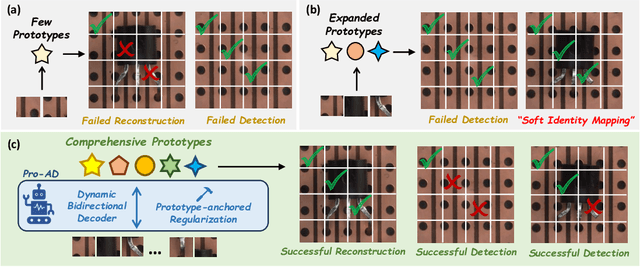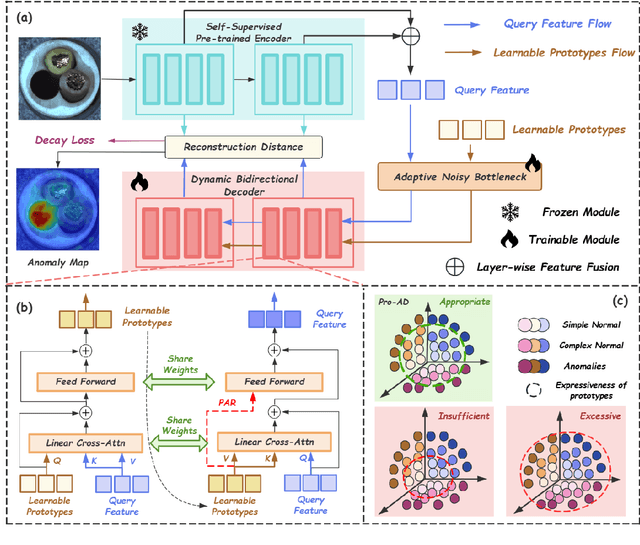Pro-AD: Learning Comprehensive Prototypes with Prototype-based Constraint for Multi-class Unsupervised Anomaly Detection
Paper and Code
Jun 16, 2025



Prototype-based reconstruction methods for unsupervised anomaly detection utilize a limited set of learnable prototypes which only aggregates insufficient normal information, resulting in undesirable reconstruction. However, increasing the number of prototypes may lead to anomalies being well reconstructed through the attention mechanism, which we refer to as the "Soft Identity Mapping" problem. In this paper, we propose Pro-AD to address these issues and fully utilize the prototypes to boost the performance of anomaly detection. Specifically, we first introduce an expanded set of learnable prototypes to provide sufficient capacity for semantic information. Then we employ a Dynamic Bidirectional Decoder which integrates the process of the normal information aggregation and the target feature reconstruction via prototypes, with the aim of allowing the prototypes to aggregate more comprehensive normal semantic information from different levels of the image features and the target feature reconstruction to not only utilize its contextual information but also dynamically leverage the learned comprehensive prototypes. Additionally, to prevent the anomalies from being well reconstructed using sufficient semantic information through the attention mechanism, Pro-AD introduces a Prototype-based Constraint that applied within the target feature reconstruction process of the decoder, which further improves the performance of our approach. Extensive experiments on multiple challenging benchmarks demonstrate that our Pro-AD achieve state-of-the-art performance, highlighting its superior robustness and practical effectiveness for Multi-class Unsupervised Anomaly Detection task.
 Add to Chrome
Add to Chrome Add to Firefox
Add to Firefox Add to Edge
Add to Edge